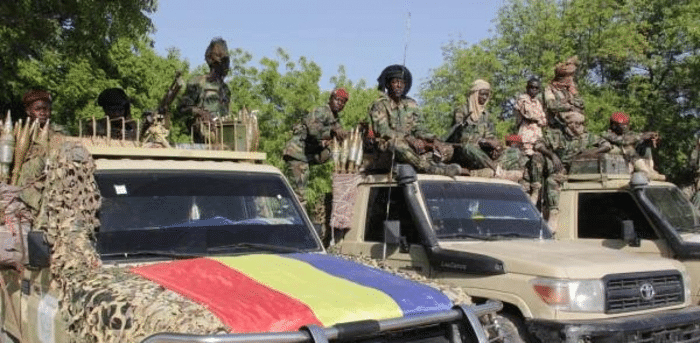
Jihadists linked to the Islamic State attacked a UN base and overran a humanitarian hub in northeastern Nigeria on Monday, trapping 25 aid workers, security and humanitarian sources said.
Scores of Islamic State West Africa Province (ISWAP) fighters invaded the town of Dikwa, dislodging troops from the military base and torching the UN hub.
"The ISWAP terrorists launched simultaneous attacks on the super camp (military base) and the UN humanitarian hub," the military source told AFP.
"The humanitarian hub has been completely burnt by the militants but so far no staff has been affected," the humanitarian source said on condition of anonymity.
"We have 25 staff sheltering in the bunker which is under siege by the militants."
Military reinforcements deployed from the town of Marte, 40 kilometres (25 miles) away, to help repel the attackers, the military source said.
"Two fighter jets and a helicopter gunship are providing aerial support with the primary aim of clearing the terrorists from the burnt humanitarian hub."
The latest assault comes three years to the day after ISWAP fighters attacked a UN humanitarian hub in the town of Rann on March 1, 2018, killing three aid staff and abducting a female worker.
Northeastern Nigeria has been plagued by jihadist violence since Boko Haram launched a Islamist insurgency in 2019.
The IS-affiliated ISWAP split from Boko Haram in 2016 and has since become the biggest jihadist threat in Nigeria.
More than 36,000 people have been killed and two million fled their homes since the start of the conflict.
On Friday ISWAP fighters in trucks fitted with machine guns raided Dikwa, sending residents fleeing.
The town, 90 kilometres (55 miles) from the Borno State capital Maiduguri, is home to more than 130,000 people, including 75,000 who had already fled from other parts of the region and were living in camps where they rely on food handouts from aid agencies.